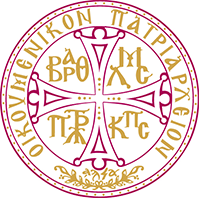COMMUNIQUÉ
The Seventh Academic Consultation of Orthodox Christianity and Judaism was held in Athens, Greece, on “The World in Crisis: Ethical Challenges and Religious Perspectives” from November 10-12, 2009. The meeting was generously sponsored by the Greek Government, the Order of St. Andrew the Apostle (Archons of the Ecumenical Patriarchate), and others. Thirty delegates participated in the meeting, co-chaired by Rabbi Prof. Richard A. Marker, Chair of the International Jewish Committee on Interreligious Consultations (IJCIC) and His Eminence Metropolitan Emmanuel of France, Director of the Office of Interreligious and Intercultural Affairs to the Liaison Office of the Orthodox Church to the EU, Brussels.
The meeting opened with a welcome message from His All Holiness Ecumenical Patriarch Bartholomew, who remarked that “for a world in crisis and yearning for hope, the parallel aspirations of the Sacred Scripture – whether of the Torah and Prophets or of the Gospels and Epistles – are the source of inspiration for the world.” Messages were also received from their Beatitudes Patriarch Theodoros II of Alexandria and All Africa, Patriarch Theophilos III of Jerusalem, and Archbishop Hieronymos II of Athens and all Greece. Rabbi David Rosen, Interreligious Affairs Advisor to the Chief Rabbinate of Israel, also delivered a message.
His Excellency Mr. George A. Papandreou, Prime Minister of Greece, conveyed a message to the participants, who also heard messages from other officials, including their Excellencies Ms Anna Diamantopoulou, Minister of Education, Lifelong Learning and Religious Affairs of Greece, and Mr. Dimitris Droutsas, Alternate Minister of Foreign Affairs of Greece. A delegation was received by the Prime Minister of Greece and the Archbishop of Athens. The consultation concluded with a dinner hosted by the Central Board of Jewish Communities in Greece and the Athens Jewish Community at the Jewish Cultural Center of Athens.
In his introductory address, His Eminence Metropolitan Emmanuel of France underlined “the uniqueness of each human person and the common issues and ethical challenges, such as the economic and environmental crisis and the deeper crises of ethical and spiritual values in the contemporary world.” The keynote speaker was Lord Daniel Brennan QC, from London, focusing on the responsibility of religious traditions and communities to respond to the world financial crisis as a reflection of the moral and ethical lapse of worldwide proportions. Rabbi Marker responded that our two respective traditions transcend national boundaries, providing paradigms worthy of the world’s attention.
The first session on “Economic Ethics Today” included presentations by Rabbi Professor Asher Meir from the Jerusalem Business Ethics Center and Rev. Dr. Cyril Hovorun, Department of External Church Relations of the Moscow Patriarchate. The speakers of the second session on “Environmental Ethics” were Mr. Jonathan Neril, Jewish environmental educator from Yeshivat Hamivtar, and Rev. Dr. John Chryssavgis, theologian of the Ecumenical Patriarchate. The third session on “Philanthropy: How our Traditions Manifest our Values in the World” was presented by Rabbi Marker, professor of Philanthropy at New York University, and the Honorable Alex Rondos, former Executive Director of International Orthodox Christian Charities (IOCC).
Participants had the occasion to express their concerns on “Current Issues: Education, Xenophobia, Terrorism, Radicalism and Extremism”.
Whereas, the two religious Traditions are built on a common Biblical base and, while divergent in many ways, nevertheless share a sense of common identification of the crises and of common conviction about the urgency of our mandate, the consultation affirmed the following principles:
1. The economic crisis has drawn the world’s attention to a crisis in spiritual values. It stimulated a crisis of confidence in systems and leadership rooted in the arrogance and greed that became evident during the financial meltdown. Economic and ecological crisis remind us of the futility of faith in human control of human destiny, and equally of the religious responsibility to address these crises effectively.
2. Representing two world religious traditions, with a long history of functioning both within and beyond State boundaries, the consultation committed itself to helping to provide constructive paradigms, built on the spiritual values of our respective Traditions, which are called to inform a world searching for new direction and answers.
3. Those gathered at the consultation were leaders charged with taking the vision of these meetings to their respective communities around the world. We recognized that discussions removed from implementation are insufficient, and the measure of the value of our meetings is that we become better informed and motivated to lead our respective communities in recognizing the urgency of the contemporary global challenges.
4. We reflected on our presence in the world, affirming that economics and the created world must be infused with the sanctity and values of our traditions. Without these, abuse of the world’s economics follows too easily; but when properly imbued with these, human beings may be ennobled to provide security in a fragile world.
Therefore, there is an urgent obligation for religious as well as political leaders of the world to engage in constructive dialogue on ideological principles and religious values, an obligation springing both from a shared respect for human rights and from a shared recognition of the need of agreement in pursuit of common aims for truthful and candid cooperation, such as will not be blighted by the arrogant self-reliance of ideology or the fanatical intolerance of religion, so that their distinct roles will not be thoughtlessly put in question, while the rights of all citizens shall indeed enjoy protection in our modern multicultural society.



